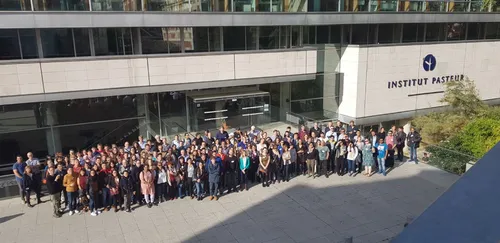Life Sciences News
See our Latest Journal Publications
University of Warwick signs agreement with agronomy specialist to bring UK beans to market
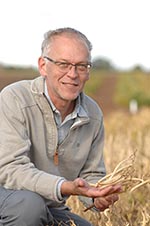 The University of Warwick’s research commercialisation wing, Warwick Innovations, has signed a contract with agronomy specialist Agrii to promote the commercial production of UK haricot beans developed by Professor Eric Holub from Warwick’s Crop Centre, part of the School of Life Sciences. Professor Holub has bred three haricot bean varieties which are adapted for growing in the UK climate and are more suited to standard farm machinery.
The University of Warwick’s research commercialisation wing, Warwick Innovations, has signed a contract with agronomy specialist Agrii to promote the commercial production of UK haricot beans developed by Professor Eric Holub from Warwick’s Crop Centre, part of the School of Life Sciences. Professor Holub has bred three haricot bean varieties which are adapted for growing in the UK climate and are more suited to standard farm machinery.
“Self-sufficiency in food production is important for reducing human impact on global climate. British-grown beans can help us shift our diets to a healthier future, adding to other UK ingredients to supply the growing trend of flexitarian diets with new markets like Brit-Mediterranean and Brex-Mexican style food.” Professor Holub.
Press Release (9 February 2021)
Soil bacteria hormone discovery provides fertile ground for new antibiotics
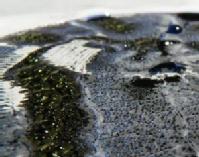 Research by Dr Chris Corre and colleagues could lead to improved manufacturing of existing antibiotics, and open up opportunities to discover new ones.
Research by Dr Chris Corre and colleagues could lead to improved manufacturing of existing antibiotics, and open up opportunities to discover new ones.
Press ReleaseLink opens in a new window (3 Feb 2021)
Chemical memory in plants affects chances of offspring survival
Professor Jose Gutierrez-Marcos and an international team of researchers have uncovered the mechanism that allows plants to pass on their ‘memories’ to offspring, which results in growth and developmental defects.
Press Release (1 December 2020)
Warwick scientists design model to predict cellular drug targets against Covid-19
A computational model of a human lung cell has been used to understand how SARS-CoV-2 draws on human host cell metabolism to reproduce by Dr Hadrien Delattre and Professor Orkun Soyer. This study helps understand how the virus uses the host to survive, and enable drug predictions for treating the virus to be made.
Press Release (25 November 2020)
Diabetic drug could slow the progression of Parkinson’s disease
A hallmark of Parkinson's disease is the degeneration of a group of neurons in the brain that release the neurotransmitter dopamine (dopaminergic neurons). By introducing low concentrations of structurally-defined aggregates of alpha synuclein, a key toxic species in Parkinson’s disease, into single dopaminergic neurons, Emily Hill and Dr Mark Wall have shown these protein aggregates open a specific channel in the cell membrane, reducing neuronal excitability.
Press Release (24 November 2020)
Breakthrough in studying the enzyme that ultimately produces fish odour syndrome
Fish odour syndrome (trimethylaminuria) is a debilitating disease, in which the liver cannot break down the smelly chemical trimethylamine which is produced by enzymes from bacteria residing in the gut leaving people with a fish like odour. Dr Mussa Quareshy and colleagues are paving the way to prevent the syndrome after a breakthrough in studying the enzyme in the gut which produces trimethylamine.
Press Release (23 November 2020)
Understanding lung infections in patients with cystic fibrosis
For young people with cystic fibrosis, lung infection with Staphylococcus aureus, MRSA, is common and is treated with antibiotics in the hope that this will prevent a decline in lung function. However there has recently been debate over the role S. aureus plays in CF lung disease. Dr Esther Sweeney, Dr Freya Harrison and colleagues have used a new model of CF lungs which could be used to make better decisions about future use of antibiotics.
Press Release (19 November 2020)
Chemical clues in leaves can reveal ash tree resistance to deadly disease
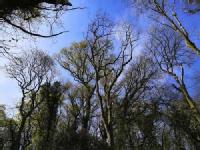 Dr John Sidda, Professor Murray Grant and colleagues, have identified a group of chemicals present in ash leaves which could be used as biomarkers to look for susceptibility or resistance to ADB.
Dr John Sidda, Professor Murray Grant and colleagues, have identified a group of chemicals present in ash leaves which could be used as biomarkers to look for susceptibility or resistance to ADB.
Press Release (11 November 2020)
Genetic mutation may hold answers to controlled breathing
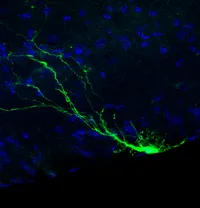 The relationship between the Cx26 gene and ability to regulate Carbon dioxide is to be explored by Professor Nick Dale thanks to a £686,956 grant, from the BBSRC.
The relationship between the Cx26 gene and ability to regulate Carbon dioxide is to be explored by Professor Nick Dale thanks to a £686,956 grant, from the BBSRC.
Press Release (13 August 2020)
Natural way to boost crop yield to be explored by Warwick Scientists
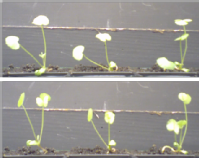 An innovative way to increase plant yield naturally, reducing the need for expensive fertilisers is being explored by Dr Miriam Gifford, Dr Isabelle Carré and colleagues, thanks to a £492,343 grant from the BBSRC.
An innovative way to increase plant yield naturally, reducing the need for expensive fertilisers is being explored by Dr Miriam Gifford, Dr Isabelle Carré and colleagues, thanks to a £492,343 grant from the BBSRC.
Press Release (12 August 2020)
Breakthrough in studying ancient DNA from Doggerland that separates the UK from Europe
Professor Robin Allaby and colleagues have achieved a number of innovative breakthroughs in analysing sedimentary ancient DNA to reconstruct an 8,150 year old environmental catastrophe in an area that is now covered by the North Sea.
Press Release(16 July 2020)
UKRI fellowships awarded to Life Sciences Academics
Two academics from Life Sciences have been awarded a UKRI Future Leader Fellowship.
- Dr Byron Carpenter for his project titled: Developing a synthetic signalling system capable of the precise spatial and temporal control of protein function in living cells.
- Dr Erin Connelly for her project: Datamining medieval medical texts for modern medicines.
The fellowship scheme is awarded to the best researchers in the UK, keeping research and innovation in the UK world class.
Warwick Researchers to provide COVID-19 Intervention Modelling for East Africa (CIMEA)
 A £1m grant from the Wellcome Trust has enabled researchers to work with East African countries in their emergency preparations for COVID-19 as the pandemic spreads across Africa. Press Release
A £1m grant from the Wellcome Trust has enabled researchers to work with East African countries in their emergency preparations for COVID-19 as the pandemic spreads across Africa. Press Release
Professor James Nokes comments:
'We hope that by closely combining our efforts with in-country expertise in modelling, epidemiology, health economics and systems and vulnerability mapping we can develop models appropriate to each setting with results that will immediately feed into the policy making process to have the greatest impact.'
Microbial interactions in aquatic environments to be investigated
 The microbes found in aquatic environments and their interactions will be investigated by Warwick researcher Professor Orkun Soyer, thanks to an investigator award from The Gordon and Betty Moore foundation.
The microbes found in aquatic environments and their interactions will be investigated by Warwick researcher Professor Orkun Soyer, thanks to an investigator award from The Gordon and Betty Moore foundation.
Check your pulses
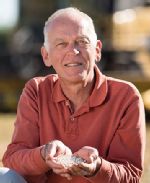 The Knowledge Centre look at research by Professor Eric Holub into new haricot bean varieties which are suitable for growing in the UK climate.
The Knowledge Centre look at research by Professor Eric Holub into new haricot bean varieties which are suitable for growing in the UK climate.
Read the article
The Vegetables of Christmas Future
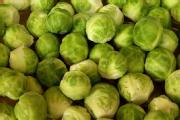 If you think about a traditional Christmas dinner, there’s turkey with pigs in blankets, or maybe you prefer a nut roast. But the rest is vegetables. A large proportion of our plate should be covered in vegetables, and the standard winter varieties, like carrots and sprouts, are grown very successfully in the UK.
If you think about a traditional Christmas dinner, there’s turkey with pigs in blankets, or maybe you prefer a nut roast. But the rest is vegetables. A large proportion of our plate should be covered in vegetables, and the standard winter varieties, like carrots and sprouts, are grown very successfully in the UK.
But will this always be the case? Climate change is bringing with it new challenges as well as making known pests and diseases more difficult to tackle. Scientists at Warwick's Crop Centre, are working to understand the pests and diseases of the some of the UK’s major crops and developing, using traditional plant breeding and genetic expertise, new resistant varieties.
Going viral: What are bacteriophages and how can they help us?
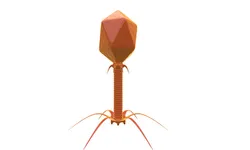 Antibiotics are going to stop working. Bacteria are developing resistance to the drugs we have to treat them and there is no doubt that without action getting an infection or having surgery is going to get a lot more risky. With a global health crisis on our hands, scientists across the world are now trying to find alternatives to the drugs which have kept us alive for the past decade.
Antibiotics are going to stop working. Bacteria are developing resistance to the drugs we have to treat them and there is no doubt that without action getting an infection or having surgery is going to get a lot more risky. With a global health crisis on our hands, scientists across the world are now trying to find alternatives to the drugs which have kept us alive for the past decade.
One possible solution is the use of bacteriophages.
Dr Antonia Sagona is working on understanding how phages fight infections.
The real Frozen: What can we do with ice?
Dr Hendrik Schafer and colleagues are looking at the microbial cycling of trace gases in sea ice as part of an international research programme called MOSAiC.
Read Knowledge Centre articleLink opens in a new window
Academic job opportunity: Associate Professor or Professor of Infection Microbiology
Applications are invited for an Associate Professor or Professor of Infection Microbiology to join our vibrant research and teaching community in the School of Life Sciences.
We particularly encourage applications from candidates who complement existing strengths in the School and who will lead research in the areas of laboratory based antimicrobial resistance and anti-infective discovery, the human microbiome, host-pathogen interactions and immunology, microbial genetics and chemical biology approaches to address human and animal infection.
Great Wall Symposium 2019
Bacterial cell biology researchers from across the world gathered at The Pasteur institute in Paris at the end of September to attend the 6th biennial Great Wall symposium organised by Professor David Roper and Professor Ivo Boneca (Pasteur). This three day meeting on all aspects of bacterial cell wall biosynthesis was attended by just under 200 interdisciplinary researchers on all aspects of bacterial cell wall microbiology.
Dr Adrian Lloyd from SLS provided an invited talk on his recently submitted research on 'Substrate and stereochemical control of cell wall crosslinking by E. coli PBP1B' as well as a posters from a number of Warwick PhD students from SLS and WMS.

